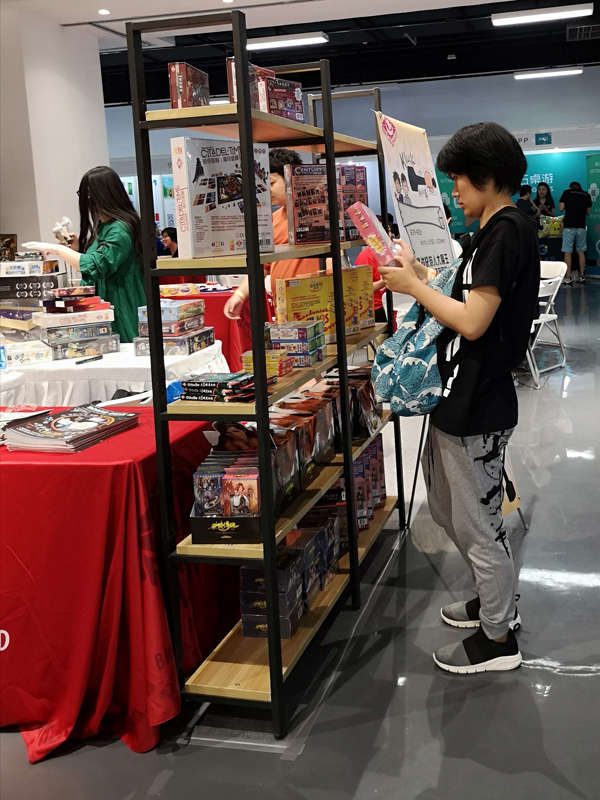Board meeting
By Xu Lin | China Daily | Updated: 2018-09-26 07:48

"The key is whether you're willing to spend time on it, and it has nothing to do with your age or occupation. For me, board games are on my priority list. For others, that priority may be to spend that time drinking with friends or going to karaoke," he says.
"To find a good gamer is also important, because-even by playing the same game over and over again-the experience differs when you play with different people."
He says it's a bit like finding a soul mate, when you make friends with others through a hobby that is popular only among a small group of people.
He also has board-game apps on his mobile phone, so that he can play at any time, but he says the main disadvantage is the lack of face-to-face communication and the tactility of touching of the game pieces.
Wang Han, a board-game bar owner from Beijing, couldn't agree more.
"People need to put down their mobile phones and socialize with one another. It's a way of relaxation; relieving themselves from the hustle and bustle of the city," he says.
He opened the bar two years ago out of his love for board games. His customers are between the age of 25 and 35. They are able to play games with concentration and like to share the games that they love.
The business is not particularly profitable, due to the high prices of the official editions of the games which average between 300 and 800 yuan. Some are more expensive, such as those with elaborate accessories.
Thanks to the sudden popularity of Werewolf, board-game bars are seeing more visitors who want to have a party venue.
"In Werewolf, gamers interact with one another and judge the opponents' roles by their logic and facial expressions," he says.
There are a variety of games to choose from other than Werewolf, according to Wang Han, and he recommends board games in accordance with interests and levels of his guests.
"I like to read them the game rules. I try to introduce board games to more people because I like to share my happiness with others."
Wang Han feels a sense of achievement by playing business simulation games-to manage a company, hire employers and rake in money.
"Such games are based on economic models. Once you take a wrong step, your company will close. They're good tools for corporations to train their staff and raise their awareness," he says.
According to him, some board-game bar owners will also buy new games from global crowdfunding platform Kickstarter and translate them into Chinese.
Meanwhile, domestic game publishers in China are striving to import more games, as well as create their own.
According to a 2017 survey conducted by dicehobby.com, a Chinese website for board game enthusiasts, among the 669 respondents, half admitted to spending between 1,000 to 5,000 yuan on board games, while 83 percent had donated to a crowdfunding program for a board game.
Many said they bought a game due to its background, mechanism and aesthetic design. Compared with overseas board games, they believed that domestic ones need to improve their mechanics, design and marketing strategy.
"Some Chinese publishers maintain good contact with those in Europe and the US. They're able to choose good games and bring them to China," says Reiner Knizia, a veteran board game designer from Germany.
"When an increasing number of Chinese become interested in the imported games, more local companies start planning to produce their own games."
He believes it's possible to reach more growth in the Chinese market due to the country's vast population.
"Local publishers can do better than their global counterparts in building brands and awareness, because they are more familiar with the local market and have access to it," says Knizia.
"As the market shares are distributed, this is a great opportunity for the Chinese publishers, who can seek cooperation with others as well. It's a step-by-step progress."
Contact the writer at xulin@chinadaily.com.cn
























